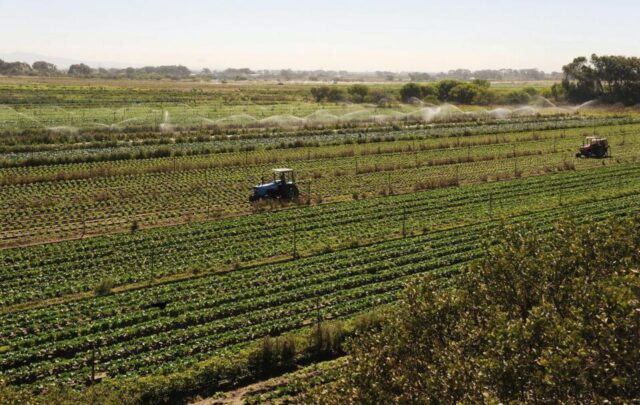Government issued a statement in which it said it was clarifying incorrect views about the AgriBEE requirements for agricultural exports to the EU and UK.
THE DEPARTMENT of Agriculture, Land Reform and Rural Development (Dalrrd) will continue to ensure that all farmers enjoy access to EU and UK markets, according to the department’s minister, Thoko Didiza.
On Monday, the government issued a statement in which it said it was clarifying incorrect views about the AgriBEE requirements for agricultural exports to the EU and UK.
It said the department had recently published two gazettes outlining the procedure for exports from the Southern African Customs Union (Sacu) and Mozambique to the EU and the UK, respectively, to take advantage of preferential tariff rate quotas (TRQ) for certain agricultural and agro-processed products.
“The weekend newspapers misrepresented the government’s message about the procedure and annual application for export permits to the EU and UK markets,” the department said.
It said that in June 2016, South Africa and other Southern African Development Community (SADC) countries signed the Economic Partnership Agreement (EPA) with the EU. After Brexit, South Africa signed an additional EPA with the UK.
“Both agreements provided preferential and duty-free access to the EU and UK for agriculture and agro-processed products. About 96.2% of South Africa’s exported agricultural products are duty-free while 2.5% enjoy partially free access to the EU and UK. Those that are partially duty-free, like wine, juice, dairy and sugar, were offered tariff rate quotas,” Didiza said.
The department said it published the procedural requirements for the permitting system yearly.
Among the requirements, an applicant must comply with any sanitary and phytosanitary requirements, rules of origin and a number of other factors contained in the bilateral agreements, it said.
Quotas also took into account the market share of the applicants, the quota applied for, the total available quota, the number of applicants and the B-BBEE status of the applicant. These requirements were not new, and mirrored the previous years’ requirements.
To contextualise these requirements, the department said there was no threshold or level that an applicant had to reach to be awarded a permit.
The B-BBEE status of the applicant was but one factor that had to be considered in conjunction with other factors.
Under the AgriBEE Sector Code, entities with a turnover of less than R10 million were Exempted Micro Enterprises. They merely needed an affidavit to this effect and not a verified certificate.
The department said the impact and effectiveness of the trade agreements were being reviewed with an eye to extending and improving upon them.
“Given the sensitive nature of the discussions, we appeal to political parties to refrain from making incorrect comments as these may harm the sector’s prospects as these agreements are reviewed,” it said.
Agricultural Business Chamber (Agbiz) CEO Theo Boshoff said: “Some articles were published this week in relation to export-quotas and B-BBEE which are factually incorrect and misleading. The permitting system is administered by Dalrrd who publish the procedural requirements on an annual basis.”
– BUSINESS REPORT








